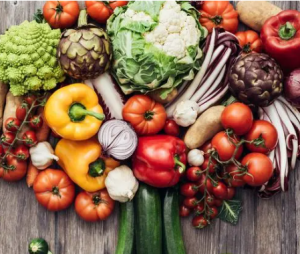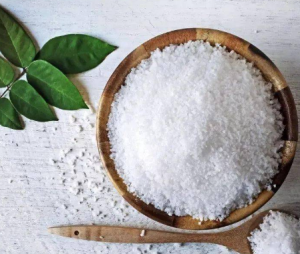Food preservation is an essential process that helps keep food fresh, nutritious, and safe for consumption. The science behind food preservation involves using different techniques and compounds to prevent the growth of microorganisms and spoilage. One of the commonly used methods of food preservation is the use of food preservatives. Food preservatives are substances that are added to food to prevent spoilage, increase shelf life, and maintain the quality and freshness of the food.
Preservatives can be natural or synthetic, and they work by inhibiting the growth of microorganisms, such as bacteria, yeast, and mold, that cause food spoilage. The use of preservatives in food dates back to ancient times when people used salt, vinegar, and smoke to preserve food. Today, preservatives are widely used in the food industry to preserve a variety of food products, including meat, poultry, fish, fruits, and vegetables.


There are several types of food preservatives, each with its unique properties and mechanisms of action. Some of the commonly used food preservatives include:
Salt: Salt is one of the oldest and most effective preservatives used to prevent the growth of bacteria and other microorganisms. It works by dehydrating the cells of the microorganisms, which makes it difficult for them to survive.
Sugar: Sugar is another natural preservative that is commonly used to preserve fruits, jams, and jellies. It works by creating a high osmotic pressure that dehydrates the microorganisms and inhibits their growth.
Vinegar: Vinegar is an acidic preservative that is commonly used to preserve pickles, relishes, and other acidic foods. The acetic acid in vinegar creates an acidic environment that inhibits the growth of microorganisms.


Nitrites and nitrates: Nitrites and nitrates are synthetic preservatives that are commonly used in processed meats, such as bacon, ham, and hot dogs. They work by inhibiting the growth of bacteria that cause spoilage and foodborne illnesses.
Sulfites: Sulfites are commonly used in wine, beer, and other fermented foods to prevent the growth of bacteria and other microorganisms. They work by inhibiting the growth of yeast and other microorganisms that can spoil the food.
While preservatives are generally safe for consumption, some people may be allergic or sensitive to certain preservatives. For example, sulfites can cause severe allergic reactions in some people, including breathing difficulties, hives, and anaphylaxis. As such, it is essential to read food labels carefully and avoid consuming foods that contain preservatives that you are allergic to or sensitive to.


At Kemfood, we understand the importance of food preservation and the role that preservatives play in ensuring food safety and quality. As a leading provider of food preservatives, we offer a wide range of natural and synthetic preservatives that are safe, effective, and meet the highest quality standards. Our preservatives are designed to inhibit the growth of microorganisms, prevent spoilage, and extend the shelf life of food products.
In conclusion, food preservation is an essential process that helps maintain the quality, freshness, and safety of food products. Food preservatives are one of the commonly used methods of food preservation, and they work by inhibiting the growth of microorganisms that cause spoilage. While preservatives are generally safe for consumption, it is essential to read food labels carefully and avoid consuming foods that contain preservatives that you are allergic or sensitive to. At Kemfood, we are committed to providing safe and effective food preservatives that help ensure the quality and safety of food products.
